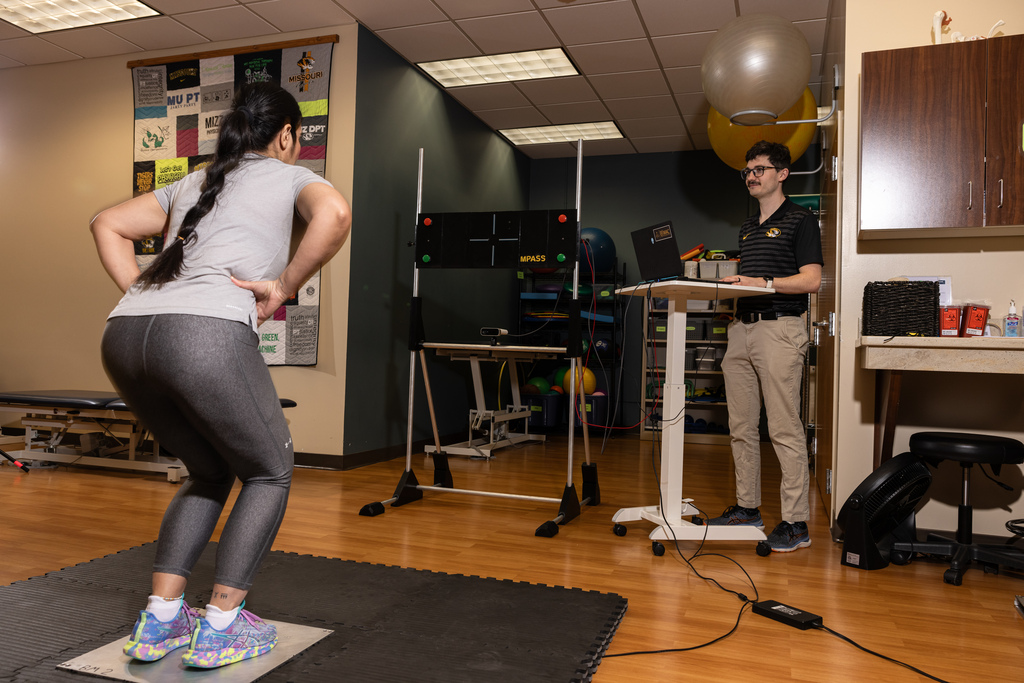Jan. 30, 2025

Story by Ryan Gauthier, rjgauthier@health.missouri.edu
The Mizzou Motion Analysis Center has received a prestigious a2 Collective Pilot Award from the National Institute on Aging, a branch of the National Institutes of Health. The $232,885 grant will support the lab’s development of an innovative, accessible tool designed to assess mild cognitive impairment, frailty and fall risk in older adults.
The project is part of the a2 Collective, a nationwide initiative that brings together researchers from top institutions, including the University of Pennsylvania, Johns Hopkins University, and the University of Massachusetts Amherst. The collective funds groundbreaking technology for healthy aging and Alzheimer’s disease detection, with a focus on incorporating artificial intelligence into health care.
The local portion of the project will bring on graduate students and postdocs to expand on the capabilities of an existing tool, the Mizzou Point of Care Assessment System (MPASS). The MPASS uses motor function measurements to detect subtle signs of cognitive and physical impairment, providing a more affordable and portable alternative to the expensive equipment necessary for a traditional gait lab.
Trent Guess, an associate professor with the Department of Physical Therapy and co-principal investigator on the project, said MPASS could be instrumental in diagnosing cognitive issues by measuring movement patterns in activities such as walking and balancing.
“Our goal is to make early detection of cognitive decline accessible to more people, especially those in rural areas who may lack access to specialized testing,” Guess said. “By using artificial intelligence and motor function assessments, we can identify subtle changes that might indicate early stages of cognitive impairment — even before symptoms are noticeable.”
Jamie Hall, an associate teaching professor with the Department of Physical Therapy, said the project is designed to capture the early precursors to Alzheimer’s disease and dementia that are typically harder to detect. New interventions and medications are coming to market, she said, but patients need to have a diagnosis of mild cognitive impairment of early dementia to qualify for those.
“Our hope is that this will increase access to screening so we can get that early intervention to folks,” Hall said. “If we could pair community fall screenings at senior centers with cognitive screenings, for example, we could put all the pieces together and really increase access to these treatments in the coming years.”
This study will focus on participants over the age of 60, including people with mild cognitive impairment and otherwise healthy adults. Guess and Hall will team with Andrew Kiselica at the University of Georgia and Praveen Rao with the Mizzou College of Engineering as part of the project. The team intends to use machine learning to analyze movement data and assess the fall risk and cognitive decline of participants, ideally leading to earlier detection of Alzheimer’s disease.
Beyond the NIH funding, the a2 Collective provides valuable resources for researchers, such as networking events and industry partnerships. That support could help the Motion Analysis Center bring its technology closer to commercialization.
“It’s always great to get a grant, but this one is nice in that the a2 Collective has seminars and connects you with companies that are interested in this kind of technology,” Guess said. “The hope is that this collective connects us with the right people to develop this further.”

